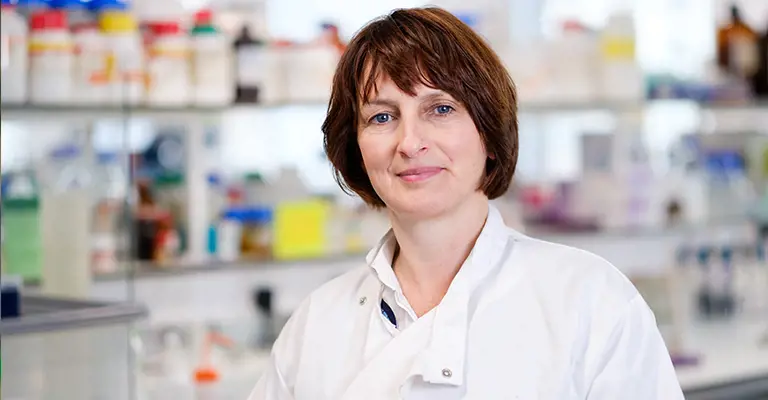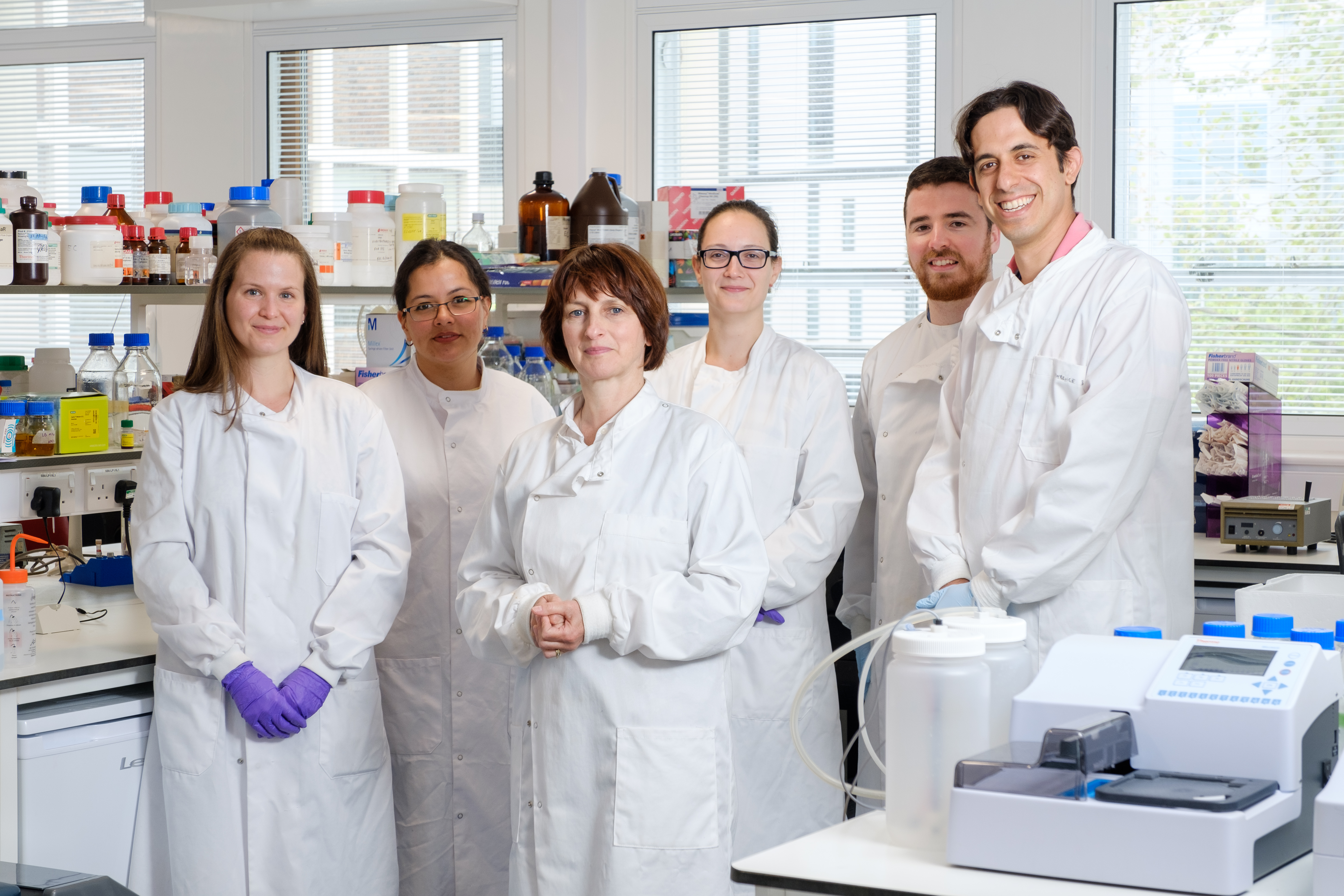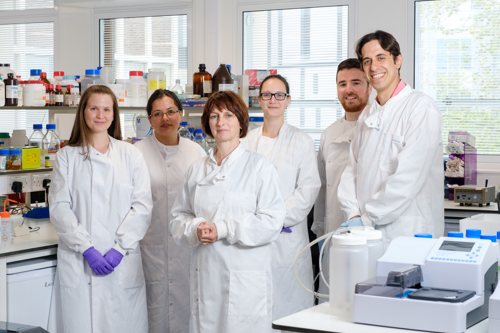Prof. Eithne Costello
Molecular and Clinical Cancer Medicine

Molecular and Clinical Cancer Medicine

Professor Eithne Costello, is a Cancer Researcher at the University of Liverpool.
Q: How long have you been a scientist?
A: I have been a scientist for 30 years. I gained my BSc Hons in Pharmacology, at University College Dublin in 1988, and then undertook a cancer-based molecular biology PhD 1993, at University College Dublin, spending one-year at the University of Berne, Switzerland. I worked in Switzerland for a further six years firstly at the Swiss Institute for Cancer Research in Lausanne and then at the Institute of Microbiology, University of Lausanne. In 1999, I took up a lecturer post at the University of Liverpool and established my own research group focused on pancreatic cancer, with a particular emphasis on early diagnosis.
Q: What is your role?
A: I am a research scientist and my work is focused on pancreatic cancer, in particular the earlier diagnosis of pancreatic cancer. This is such a challenging disease and survival rates are still very low (around 7%). This is because, in many cases, pancreatic cancer is diagnosed very late and the disease has often spread.
But diagnosed earlier pancreatic cancer can be operable, so this is what we are trying to achieve.


Q: What are you working on at the moment?
A: North West Cancer Research provided us with initial funding for our work to develop a test to detect patients who might have early-stage pancreatic cancer. Every year around 200,000 people are diagnosed with diabetes, and we know that around 10% of those patients have a type of diabetes caused by early-stage pancreatic cancer. So our work is to develop a blood test to identify this group of patients. They can then be referred for scans on their pancreas to detect any tumours. At that stage many tumours are operable. So this is a crucial piece of work which could vastly improve our ability to detect and diagnose pancreatic cancer at a very early stage.
Q: How did you feel when your work led to this breakthrough?
A: It’s very exciting because this really feels like a step-change in how we diagnose this disease for the first time. We now have the chance to continue this research on a much larger scale which will take us even closer to developing this test.
Q: What drives you in your job?
A: Making a difference to real people. This is a disease that affects so many people and survival rates are still very low. While we have made progress in treatments, our ability to diagnose this disease earlier has not really improved. The only way to make a difference to cancer survival rates ultimately is to invest in research, and it’s great that this investment is now coming, and we are starting to hope we can make a real difference.
Q: What do you do outside the lab?
A: I have two children aged 21 and 14 who keep me busy and when I’m not in the lab I really love being in the garden as that helps me to relax. I’m also learning to play the guitar.